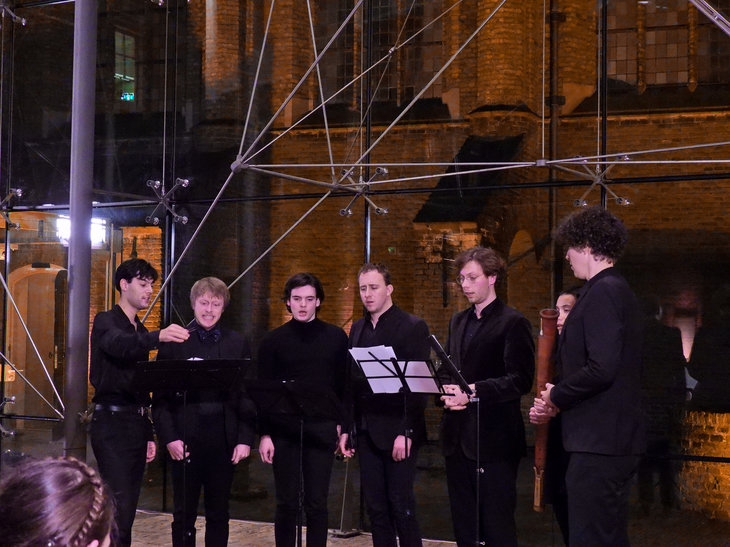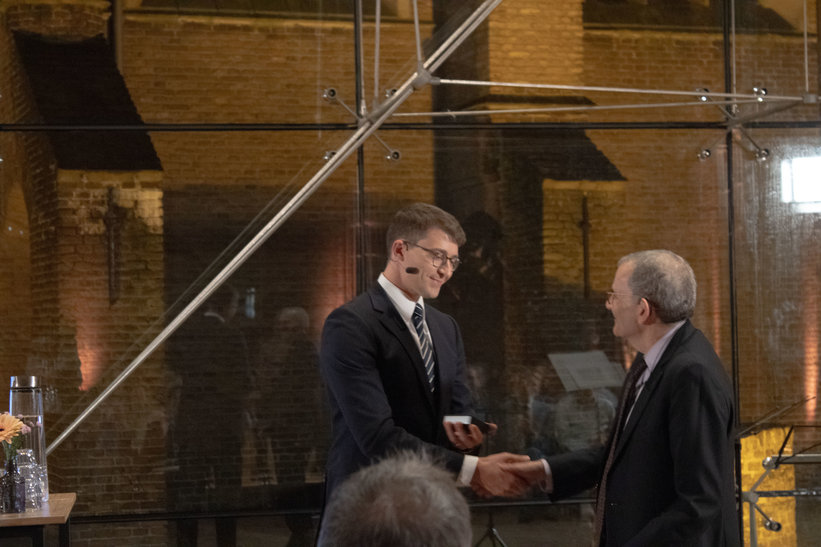Samuel Scheffler visited the Delft Digital Ethics Centre
Samuel Ira Scheffler (born 1951) is a moral and political philosopher and University Professor of Philosophy and Law in the Department of Philosophy and the School of Law at New York University. He is the author of several books published by Oxford University Press, most recently Why Worry About Future Generations? (2018).
This year's Van Hasselt Lecture at TU Delft was delivered by philosopher Samuel Scheffler (NYU). During Scheffler’s stay in Delft, the Delft Digital Ethics Centre organized a workshop on Values and Valuing in Virtual Life with Samuel Scheffler as guest of honor
Van Hasselt lecture
During his lecture entitled “Existential Catastrophe: A multigenerational view” Samuel Scheffler challenged longtermism and defended the ethical significance of humanity's prolonged existence based on our 'historical sensibilities' rather than the potential happiness of billions of future people (which pale our present concerns, as longtermists argue). Want to learn more on Scheffler’s work and view? Professor Samuel Scheffler was interviewed by the NRC, or watch the recording:
The annual Van Hasselt Lecture addresses topics around ethics, peace and justice in our technological age. The lecture was named after Frans van Hasselt, a student in Delft, who denounced the firing of Jewish professors at the university in a public speech on the 23rd of November 1940. He was arrested by the occupying forces and perished at Buchenwald concentration camp two years later. Michael Klenk will continue to organize the lecture series in the years to come together with Studium Generale.
Michael Klenk: “I am thrilled with the opportunity to both commemorate Frans van Hasselt's brave actions and to host first-rate philosophers at TU Delft to address topics around ethics, peace and justice in our technological age”



The workshop Values and Valuing in Virtual Life
Many are worried about the moral acceptability of digital technologies, such as generative AI (e.g., Chatgpt) and social media, and about the fate of our values as we live in worlds created by such technologies. Significant discussions have emerged concerning how (if at all) our values might be accommodated online, how changing values might be identified and given presence online, and alternatively, whether these technologies call for re-interpreting and adjusting our values and for engineering our ethical concepts to better apply to the life-worlds to which these technologies give rise.
The workshop provided an opportunity to discuss and innovative work-in-progress being undertaken by members of the Delft Digital Ethics Centre. There were two short presentations for discussion by mid-career researchers on the issues sketched above concerning the fate of our values and ethical concepts as we live online:
- Michael Klenk on“Online Manipulation”
- Olya Kudina on "The value of sustainability in more-than-human worlds: AI data centers, water and care ethics perspective."
The in-progress work of Dean Cocking & Jeroen van Den Hoven on the fate of valuing in virtual worlds was also presented during the workshop. Our capacities to be valuing beings, they argue, are heavily dependent upon our immersion in relationships and social practices that are unavailable or can only have limited presence in virtual worlds. If so, then even if we have a virtual future where values can be accommodated, or ethical concepts engineered to better apply, we may not have a future as valuing beings. See also their Evil Online (Evil Online | Wiley) and a special issue of Oxford Journal for Practical Ethics Journal of Practical Ethics | Issue: Issue: 2(9) Symposium on Cocking and van den Hoven’s "Evil Online" (2022) (umich.edu).